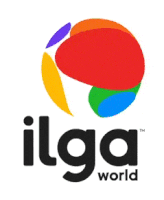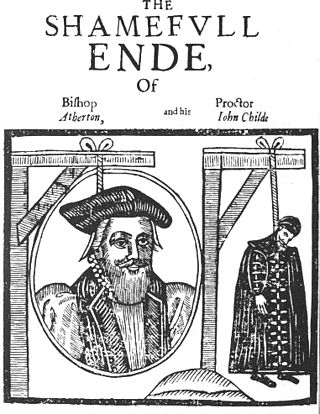
"Don't ask, don't tell" (DADT) was the official United States policy on military service of non-heterosexual people. Instituted during the Clinton administration, the policy was issued under Department of Defense Directive 1304.26 on December 21, 1993, and was in effect from February 28, 1994, until September 20, 2011. The policy prohibited military personnel from discriminating against or harassing closeted homosexual or bisexual service members or applicants, while barring openly gay, lesbian, or bisexual persons from military service. This relaxation of legal restrictions on service by gays and lesbians in the armed forces was mandated by Public Law 103–160, which was signed November 30, 1993. The policy prohibited people who "demonstrate a propensity or intent to engage in homosexual acts" from serving in the armed forces of the United States, because their presence "would create an unacceptable risk to the high standards of morale, good order and discipline, and unit cohesion that are the essence of military capability".

The International Lesbian, Gay, Bisexual, Trans and Intersex Association (ILGA) is a LGBTQ+ rights organization.

The Crown Prosecution Service (CPS) is the principal public agency for conducting criminal prosecutions in England and Wales. It is headed by the Director of Public Prosecutions.

Stonewall Equality Limited, trading as Stonewall, is a lesbian, gay, bisexual and transgender (LGBTQ) rights charity in the United Kingdom. It is the largest LGBT rights organisation in Europe.

The American Family Association (AFA) is a conservative and Christian fundamentalist 501(c)(3) organization based in the United States. It opposes LGBT rights and expression, pornography, and abortion. It also takes a position on a variety of other public policy goals. It was founded in 1977 by Donald Wildmon as the National Federation for Decency and is headquartered in Tupelo, Mississippi.

The Russian Ground Forces, also known as the Russian Army in English, are the land forces of the Russian Armed Forces.

LGBTQ culture is a culture shared by lesbian, gay, bisexual, transgender, and queer individuals. It is sometimes referred to as queer culture, while the term gay culture may be used to mean either "LGBT culture" or homosexual culture specifically.

LGBT tourism is a form of tourism marketed to gay, lesbian, bisexual, and transgender (LGBTQ) people. People might be open about their sexual orientation and gender identity at times, but less so in areas known for violence against LGBT people.

Lesbian, gay, bisexual, and transgender (LGBTQ) people in Iran face severe challenges not experienced by non-LGBTQ residents. Sexual activity between members of the same sex is illegal and can be punishable by death, and people can legally change their assigned sex only through sex reassignment surgery. Currently, Iran is the only country confirmed to execute gay people, though death penalty for homosexuality might be enacted in Afghanistan.

Lesbian, gay, bisexual, and transgender (LGBT) people in Belarus face significant challenges not experienced by non-LGBT residents. Although same-sex sexual activity is legal in Belarus, gay and lesbian rights in the country are otherwise severely limited and homosexuality remains highly stigmatized in Belarusian society. Households headed by same-sex couples are not eligible for the same legal protections available to opposite-sex couples. Belarus provides no anti-discrimination protections for LGBT people, nor does it prohibit hate crimes based on sexual orientation and gender identity. Many Belarusian people believe that homosexuality is a psychiatric illness, and many LGBT persons in Belarus tend to hide their sexual orientation in public. Those who are "out" face harassment, violence and physical abuse.
Lesbian, gay, bisexual, transgender, and queer (LGBTQ) personnel are able to serve in the armed forces of some countries around the world: the vast majority of industrialized, Western countries including some South American countries, such as Argentina, Brazil and Chile in addition to other countries, such as the United States, Canada, Japan, Australia, Mexico, France, Finland, Denmark and Israel. The rights concerning intersex people are more vague.

Calpernia Sarah Addams is an American actress, musician, spokesperson and activist for transgender rights and issues.

Troy Deroy Perry Jr. is an American cleric and the founder of the Metropolitan Community Church, with a ministry with the lesbian, gay, bisexual, and transgender communities, in Los Angeles on October 6, 1968.

Lesbian, gay, bisexual, and transgender (LGBTQ) people in the Islamic Emirate of Afghanistan face severe challenges not experienced by non-LGBT residents. Afghan members of the LGBT community are forced to keep their gender identity and sexual orientation secret, in fear of violence and the death penalty. The religious nature of the country has limited any opportunity for public discussion, with any mention of homosexuality and related terms deemed taboo.

Adam4Adam is an online dating website designed for men to meet other men "for friendship, romance, or a hot hookup".

A sodomy law is a law that defines certain sexual acts as crimes. The precise sexual acts meant by the term sodomy are rarely spelled out in the law, but are typically understood and defined by many courts and jurisdictions to include any or all forms of sexual acts that are illegal, illicit, unlawful, unnatural and immoral. Sodomy typically includes anal sex, oral sex, manual sex, and bestiality. In practice, sodomy laws have rarely been enforced to target against sexual activities between individuals of the opposite sex, and have mostly been used to target against sexual activities between individuals of the same sex.
Canadian military policy with respect to LGBT sexuality has changed in the course of the 20th century from being intolerant and repressive to accepting and supportive.
The United States military formerly excluded gay men, bisexuals, and lesbians from service. In 1993, the United States Congress passed, and President Bill Clinton signed, a law instituting the policy commonly referred to as "Don't ask, don't tell" (DADT), which allowed gay, lesbian, and bisexual people to serve as long as they did not reveal their sexual orientation. Although there were isolated instances in which service personnel were met with limited success through lawsuits, efforts to end the ban on openly gay, lesbian, and bisexual people serving either legislatively or through the courts initially proved unsuccessful.

The history of violence against LGBT people in the United Kingdom is made up of assaults on gay men, lesbians, bisexual, transgender, queer and intersex individuals (LGBTQI), legal responses to such violence, and hate crime statistics in the United Kingdom. Those targeted by such violence are perceived to violate heteronormative rules and religious beliefs and contravene perceived protocols of gender and sexual roles. People who are perceived to be LGBTQI may also be targeted.
This overview shows the regulations regarding military service of non-heterosexuals around the world.
















